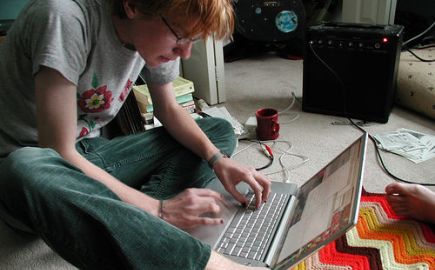We need MOOCs for their data

In the middle of the hype around Massive Open Online Courses (MOOCs), we might forget an essential question: why should we use MOOCs?. The most simple rationale lies of course in the ‘’massive’’ part. MOOCs provide an opportunity for faculty to teach not only to their own students, but to every interested human being in the world. The major providers in the US, Coursera, Udacity and edX, prove higher education could attract thousands of students without even offering certificates. With initiatives like MOOC 2 Degree and the support of MOOCs by the American Council on Education, their numbers could quickly grow to millions.
Naturally, there are still issues that need to be resolved, such as the question who pays for MOOCs and how online learning can be supported effectively. However, thanks to their open character MOOCs have recently received a place in the spotlights. The first seminar about the MOOCs of SurfAcademy on the 26th of February was streamed live because of the widespread interest.
At this seminar, Marja Verstelle of Leiden University presented a quite different rationale for MOOCs: the most important reason for Leiden to join Coursera is to improve campus education. Making MOOCs is not a goal, but foremost a means to ‘learn about learning’. As Verstelle admitted, this may seem an odd objective at first sight.
MOOCs as means
However, the idea is not as strange as it seems: when students can learn the theory on their own speed, can pause and repeat when they have trouble or fast forward when they get bored, their learning will improve. Such ‘weblectures’ are already offered at most universities as an extra learning tool for their students.
In addition to just recording the lectures, introductory courses could be taped once and thereafter improved and updated without much effort. The face-to-face meetings could be used for student questions. Based on these questions, teachers could improve their lectures to filter out ambiguities and add explanations for difficult parts.
This leads to further ideas: why not integrate questions in the videos? We can immediately check whether students have understood the material – and thus get them to participate! This not only provides students with feedback, but the teacher as well. More complicated questions can be asked in forums and discussion groups where students can discuss with each other.
This creates space in the lecture for other types of learning. Harvard professor Eric Mazur happily shares his experiences. In addition, universities could look at the concept of ‘Flipping the Classroom’ and the use of KhanAcademy within secondary education.
Different, yet complementary
While very different, the goals of (1) making education more open and (2) improving campus education, are in fact complementary. MOOCs function not only as an accelerant for these innovations, but also as test cases. Due to the large amount of learners in MOOCs (100.000+ is no exception) in-depth data about learning can be acquired. Which explanation time-frames work best?
How do students learn most effective? With this data – coined ‘Learning Analytics’ – statistics can be obtained to further improve the way we educate. At this moment we are entering a cycle of increasing online education, gather meaningful data from this and improve campus education with that data. In the words of John Mitchell, Vice-Provost Online Learning at Stanford: “We really don’t know where all of this will lead. We’re just committed to improving education as much as we can.””
Corneel den Hartogh works at Perceptum, a start-up dedicated to educational innovation. In addition, he is a student at the University of Amsterdam.
Meest Gelezen
Vrouwen houden universiteit draaiende, maar krijgen daarvoor geen waardering
Wederom intimidatie van journalisten door universiteit, nu in Delft
‘Burgerschapsonderwijs moet ook verplicht worden in hbo en wo’
Raad van State: laat taaltoets nog niet gelden voor hbo-opleidingen
Hbo-docent wil wel rolmodel zijn, maar niet eigen moreel kompas opdringen

